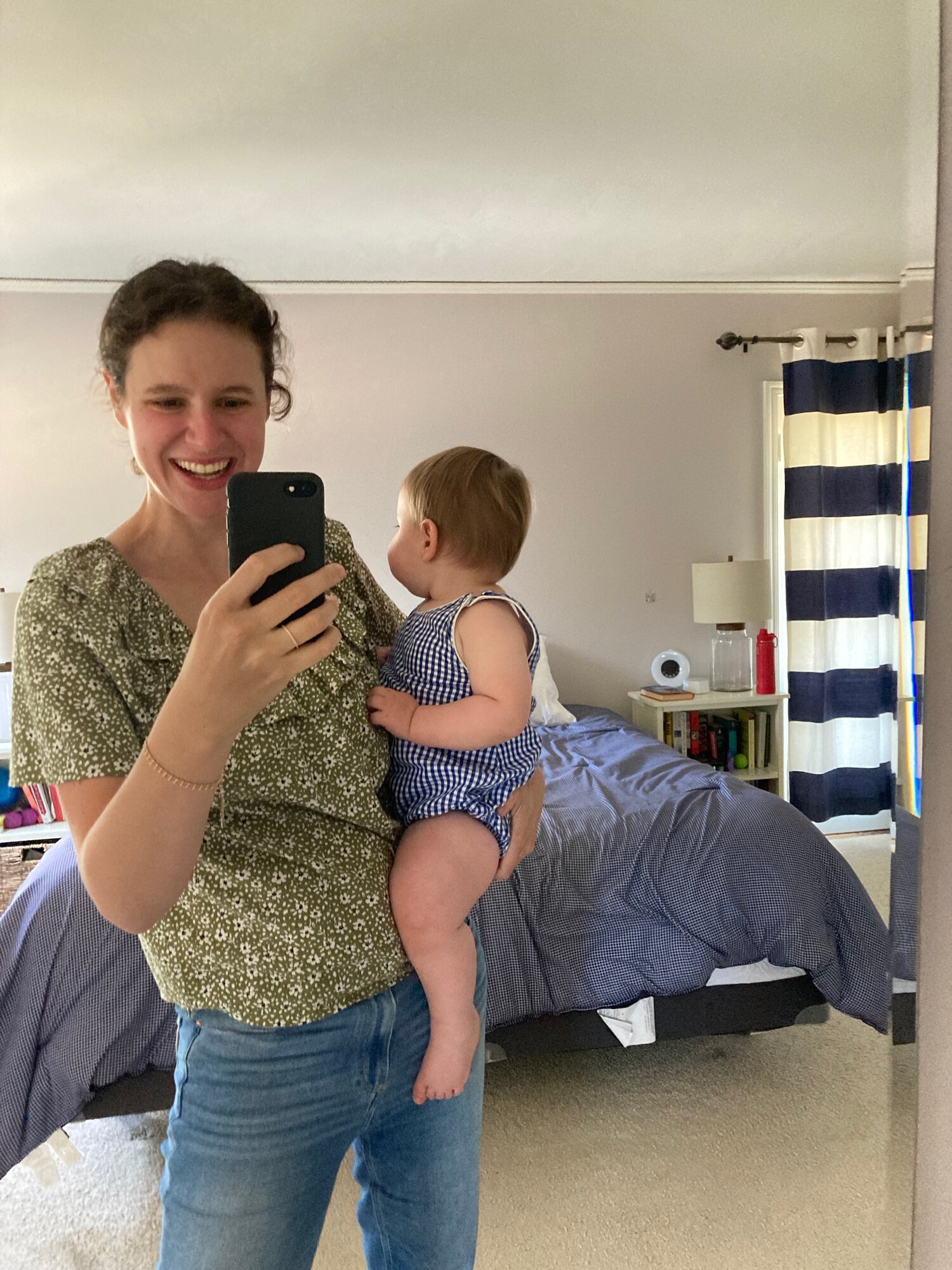Blog
Exhausted at work but can't take time off? Here's 6 ways to help
Many of my clients come to me with jobs that freaking exhaust them.
They tell me they absolutely have to quit their exhausting jobs, to become librarians or writers. Or live in airstreams by the sea. There’s no other way out.
I’m not against quitting one’s job, but today, I thought it might be helpful to share 6 ways that I help my clients have much more energy when their jobs are draining the life force out of them:
Get clear about your authentic priorities.
Many of us are unintentionally living as though “being a perfect employee” is our top life priority. But when we really think about it… it’s not.
Our priorities might be something more like: “I want to add a lot of value at work, while also having plenty of time to take care of myself and connect with my partner.”
The difference between showing up at work with the goal of “being a perfect employee” versus “I want to add a lot of value at work, while also having plenty of time to take care of myself and connect with my partner” can be night and day.Think new thoughts about your job.
You might be into this whole “I want to live in tune with my true values” idea.
But when you try to implement it, your brain might flip out. It might tell you things like: “You’ll get fired!” or “Your boss/colleagues will be so mad!” or “You can’t do a good job without working the way you’ve been working!”
These thoughts are very scary. They feel very true. So — you’ll keep working the way you’ve been working…which has been exhausting you.
And yet, far more often than we think, the thoughts that our brains are yelling are simply not true. In this example, it actually might be true that working in a way that would be in tune with your values would give you more energy, creativity, and resourcefulness, which might even (gasp!):Make you better at your job,
Delight your boss or colleagues,
Make you more likely to stay at your job (rather than quit to become a librarian or live in Portugal for a year). And yes… wait for it…
Make you more likely to eventually get promoted.
The way you think about your work situation deeply matters. If you believe that it’s irresponsible or careless to work less or work differently — you’ll simply never do it. This is something I often work with clients on: thinking new thoughts about the same situation.
(If you’d like to start thinking some new thoughts — here’s one way to get you started)You must work smarter, not harder.
I have never met a client who couldn’t put in less time and energy, with equal or superior results, by strategically shifting how they work. In other words: “working smarter.”
The tricky thing about working smarter (as with many of these points) is that it can be hard to see the opportunities in our own lives. This is where a coach who can point out opportunities you can’t see can be astonishingly useful.
But if you’d like to begin on your own, here’s one concept that I often share with my clients, as a way of kicking off the “work smarter” conversation.It might be time to build new skills.
Setting boundaries, making requests (for a new salary, for a promotion or a new project), having difficult conversations effectively with work colleagues, communicating well over email, processing and then letting go of anxiety when an interaction doesn’t go as you’d hoped — these are all things we can become more skillful at with time.
And “building skills” doesn’t have to be exhausting. I often find that my clients just need someone to point out a small new technique, tiny tweak, or opportunity they may have missed.Are you attending to what you need to attend to, outside of work?
Work is much less exhausting when we are well-rested, well-nourished, physically well, and emotionally supported in our out-of-work life. And yet: there can be a complex web of reasons why we might not, say, get meaningful rest, or have enough emotional support.
And here’s something I frequently find: my clients often think they know our out-of-work priorities, but as we dig deeper, it often turns out that their sense of priorities is actually no longer true for them. They think that they like how they spend their Saturdays, for example, but when we really dig in… it’s not working for them. Refreshing your priorities to help you get what you need right now often has astonishing dividends for work productivity and energy.
Coaching can help with that, too.Be thoughtful about when to leave, and when to stick it out.
Sometimes you can do all of the personal work in the world… but your job or your industry is just not suited to you. Coaching can help you tell the difference between the two, so you’re not stuck in anguish and mental drama about it.
…
If you take one thing from this essay, let it be this: There are many more opportunities to feel better at your job than you are currently seeing.
This is one (of many) areas in which life coaching can shine. Having a coach to talk through your specific situation in detail is worth its weight in gold (and in dollars and cents). If you’d like to work with me, you can find out more here.
But whether we work together or not, I hope this list gives you some ideas for where to start, if you ever start feeling exhausted by your job.
I’m rooting for you.
Katie
Sign up for my newsletter to get helpful + encouraging essays like this every Sunday morning. It’s free!
Two personal insights about refilling your tank + recovering from burnout
On Memorial Day, we discovered that one of my sons had some pretty serious health issues. Without sharing too many details, the past few months have included a hospital stay, specialists, medications, tests, and more.
In late July, we got the news that he is (I am crossing so many fingers as I write this) past the scariest part. I felt grateful, relieved, and… completely exhausted.
I gave myself a full day to just fall apart: not get anything done, do whatever I felt like (this mostly involved YouTube videos + online window shopping). But I noticed that even the next day, I wanted to be back in action, but… I was still completely exhausted.
It made me reflect on the other times when my emotional/mental/spiritual tank had felt empty, and I had two insights that I thought might be useful to you, as well:
1. There’s a relationship between how empty your tank is and how long it takes to refill, but it’s not linear.
If the relationship was linear, then if your tank was 2x as empty as usual, it would take 2x as long as refill.
But, in my experience, that’s not how it works. At minimum, if my tank is 2x as empty as usual, it takes 4x as long to refill. Or longer.
This is extremely important, because it’s a reminder that refilling your tank may take much longer than you expect.
(And, on a personal level, this is why I am, whenever possible, willing to spend money to reduce my tank emptying. When we had newborns, for example, we spent money to get help, and I think that made a truly astonishing difference to my year. Coming back from a tank that is, say, 3x as empty as usual is radically different than coming back from a tank that is 6x as empty as usual. Though, of course, many forms of tank-emptying are unavoidable, and most of us don’t have unlimited budgets.)
2. There are distinct stages to the process of refilling one’s tank.
I’ve come to realize that there are at least 3 phases in how I recover my energy. I actually call them “levels,” because it almost feels like a video game of “Katie Tank Refilling.”
In Level 1 of this process — when my tank is most empty — the only thing that sounds remotely appealing is not feeling so freaking tired. I feel completely uninterested in my Big Picture Goals, things like: reaching more people with these essays, doing home repairs, or getting better at French.
But another thing about Level 1 is that many of the intentional practices I write to you about (being intentional about technology! And exercising! Lying on the floor + sitting with uncomfortable feelings!) also seem completely unappealing. In fact, they seem exhausting.
Instead, I notice myself eating a little more indulgent food, being a little less interested in exercise, and — this is the most significant difference — vegging a lot more on screens. Interestingly, these things really do feel like they serve me, during this Level 1 period of an intensely empty tank.
And, then, there will be some point when I suddenly notice — and truly, it’s often kind of abrupt — oh wait, these things aren’t making me feel good anymore. The screen time, the more indulgent food, not moving as much — are now draining me, or making me feel more vague and foggy.
I’ve hit Level 2.
In Level 2, I resume my typical feel-good practices: being intentional about screens, eating, and movement. But the key thing about Level 2 is that my primary goal is still rest + recovery — I still feel pretty uninterested in Big Picture Goals.
And then, there will usually be another sudden moment (it might be days, or even weeks later, depending on how empty my tank was), when suddenly my Big Picture Goals actually feel… interesting.
Hello, Level 3.
…
As I write this essay in late July, I’ve just gotten past Level 1 (this weekend included a fair amount of YouTube, plus searching for toddler bookshelves and toddler sun hats online)… and I’m finding myself in Level 2. My goal for the week is to take amazing care of my clients, and otherwise, to rest + take excellent care of myself, till I get my energy back.
I’m willing to let Level 3 come when it comes.
(On a personal note: I love this insight because it makes me feel less anxious. I could get totally spun out and frustrated about my screen usage over the weekend, for example. But instead, I just said to myself: I’m in Level 1. I will know when I’ve hit Level 2 and it’s time to ramp this down. But I’m not there right now.)
…
I was talking with my friend Catherine Andrews last week, and she was like: Katie, this is a really great description of the process of recovery. Not everyone knows this.
So I wanted to share it with you. I hope it gives you encouragement, however your tank + process of recovery looks like today.
As always, I’m rooting for you. You’ve got this.
Katie
p.s. Life coaching can radically expedite the tank-refilling process. Like, it is insane what a difference it can make. If it’s of interest, you can learn more here.
Sign up for my newsletter to get helpful + encouraging essays like this every Sunday morning. It’s free!
One way to feel less tired
Here’s a radical question for all of us:
Do you need to feel more bored?
So many of us are chronically busy or stressed. I started to notice that even though my life isn’t crazy-busy — which I’m grateful for — I didn’t have that open, relaxed, spacious feeling as much as I’d like. It often felt like my life was going by fast, and I wondered if that was what I really wanted.
I’ve started to wonder whether boredom is part of the solution. For me, boredom feels like the opposite of busyness. When you’re busy, your life is too full. When you’re bored, your life is too empty.
And do we need that feeling of “too empty” regularly, to balance out the frequent times when our lives feel “too full”?
Like any good life coach, I experimented on myself.
One recent Saturday, my husband was gone for the afternoon and I had nothing to do. I could feel myself being pulled to watch episodes of Sex and the City (which I’m watching for the first time; please send your opinions). But I’d also been feeling a bit overstimulated recently — and have been curious about how I relate to technology — so I decided I would try to stay off screens all afternoon.
I’ll read, I thought. That’s a pleasant way to pass the time. But I’d been reading a lot lately and didn’t feel like reading more.
I could feel myself starting to worry: Wait, what am I going to do all afternoon? That’s a lot of time!
I genuinely didn’t know what I was going to do all afternoon. I felt bored. But I also noticed that within the boredom was some anxiety. I wasn’t used to this feeling of under-stimulation and feelings were coming up.
And yet, after lying on the couch and worrying that this afternoon would kill me with boredom and last forever, I did eventually find some things to do:
I journaled about some things that were on my mind.
I made a daydreaming list of all the furniture I’d get to decorate my house if I had an unlimited budget.
I paged through cookbooks, looking at pictures and thinking about recipes to make.
I cut blooms off our rosebushes, filling five tiny jars with roses and putting them all around my home.
I sat on my front stoop and looked out at the street, watching people walk by with their dogs.
Once a few hours had passed, I realized the initial anxiety was long gone. In fact, I felt more relaxed than I had in a long time.
Even more surprisingly, my life felt slow. While I don’t have a crazy stressful life, my life doesn’t usually feel slow. It felt like I lived in a small town on a 1950s sitcom.
Truthfully, I didn’t have “fun” in the way I would have had fun binge-watching episodes of Sex and the City. It was an under-stimulating and sometimes boring afternoon, even though I eventually found some pleasant things to do. But in other ways, I felt extremely rejuvenated from just a couple of hours. I literally thought to myself, it feels like I’ve been to a spa.
I can’t remember ever thinking to myself that a random weekend afternoon felt like a trip to a spa.
…
So I’d like to ask you, again: Do you need to be more bored?
I bet that most people reading this email can relate to life feeling too full. But how often, for hours at a time, has your life felt too empty? Would you be willing to explore it?
If so, let me know how it goes!
I’m rooting for you. You’ve got this!
Katie
If this essay resonated with you, you'll love my newsletter. Sign up for free + get new ideas every Sunday!



